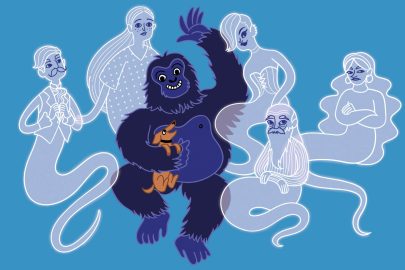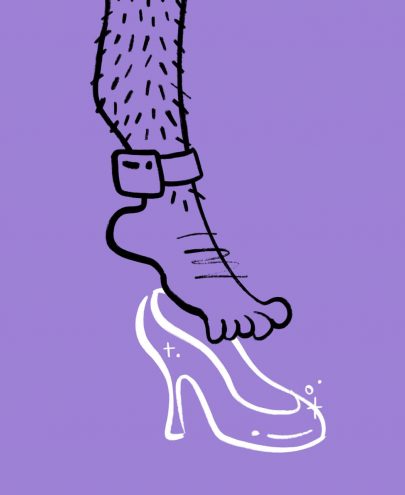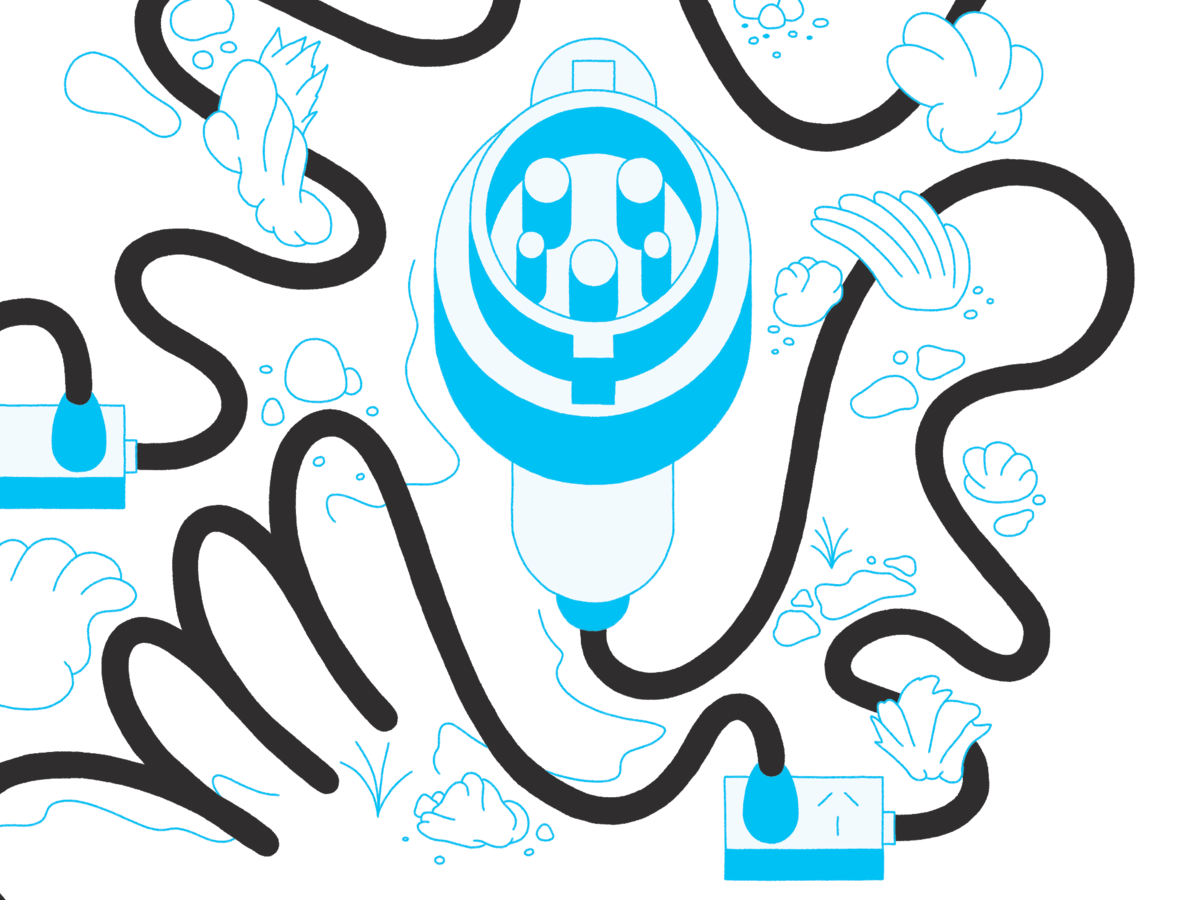Aug 12, 2016 etc
That Sunday, wandering the supermarket aisles and joking about how much needless plastic was going into our baskets then watching as the teller filled our plastic bags, had somehow acted as a catalyst: suddenly everywhere I looked, taking closer notice after the chance reading of a recent New Yorker article on plastic-bag pollution in New York, all I could see was plastic, and now it was no joke.
It came to symbolise in my mind all that is wrong with how we treat our short tenure on Earth: we are prepared, for the sake of convenience, to tolerate a product that will exist forever. As the New Yorker’s Ian Frazier writes, “Even broken down into microscopic crumbs, plastic will still be plastic… science learned long ago how to put together hydrocarbon polymers to create plastic, but it still has not found a good way to take them apart.”
I picked up bottle tops and wrappers and two shopping bags floating listlessly, like ghouls, just below the lapping wavelets.
And so plastic, often used once and then discarded, collects in landfills and revolves in great gyres in the ocean, forever breaking into smaller and smaller parts and forever just being there. It is a problem that grows expo-nentially. Since the dawn of the new millennium, more plastic has been produced than in all the years previous; in Auckland, according to council figures, 14,032 tonnes of soft plastics are collected in the city every year.
I spoke with Steph Borrelle, a PhD candidate at AUT whose research looks at the impact of plastics on marine environments. “The extent of the problem is enormous,” she told me. “It never goes away.” Plastic, she says, is already found in the digestive systems of 90 per cent of the world’s seabirds; by 2050, that number is expected to be 99 per cent, a startling statistic she calls “a pretty strong statement about the health of the oceans”.
More than 220 species have been found to mistake plastic for food; plastic entraps sea life, contaminates water and soil, and endangers human health when, broken down and ingested by fish, its toxins enter the food chain. For Borrelle, the humble plastic shopping bag is a particularly insidious product, and in 2014, she presented a 5000-signature petition to Auckland Council calling for it to be banned.
The world uses and disposes of as many as one trillion (1,000,000,000,000!) single-use plastic bags every year, and this country’s contribution to that total is an estimated 1.6 billion annually. Borrelle says plastic shopping bags are used, on average, for only 12 minutes before they enter the waste stream, and points to a host of countries and cities that have already curtailed their use.
Bangladesh was the first to do so in 2002, after it was discovered plastic bags had clogged drainage systems and contributed to flooding. Ireland, where plastic bags stuck in trees are known evocatively as “witches’ knickers”, introduced a fee for plastic bags provided by retailers in 2002, reducing their use by 94 per cent. New York recently introduced a five-cent levy, to join more than 170 other American cities, including San Francisco, Los Angeles and Seattle, that have taken measures to restrict plastic bags. Even developing nations such as Uganda and Rwanda have enacted laws restricting single-use plastic bags.
Why, then, in light of Auckland Council’s Waste Management and Minimisation Plan, which aspires to zero waste to landfill by 2040, can this city not do something similar?
I asked Parul Sood, Auckland Council’s waste planning manager. When Borrelle’s petition was presented to the council, it launched an investigation into whether it had the legislative power to ban, or impose a levy on, plastic bags. The environment, climate change and natural heritage committee found it was “outside the ambit of the bylaw-making powers of the council”, and that only the government could pass such legislation. Instead, the council’s focus is on non-regulatory action. As Sood told me: “If you can’t ban [plastic bags], how do you look at reducing consumption, making customers aware of the facts and reusing another type of bag.”
The government has no intention of regulating. Despite a 2015 remit from Local Government New Zealand calling for a levy on plastic bags, Environment Minister Nick Smith told me the government’s focus is on recycling — a plant capable of recycling soft plastics opened in Auckland last year — and making sure plastic makes it to landfill, where it can be responsibly contained. He calls regulation a “blunt tool”. “The government’s position is that there is a more practical approach in supporting the recycling of soft plastics and that there is not a good rational basis for targeting plastic shopping bags.” Smith says New Zealanders are “reasonably responsible” in ensuring their waste does not end up in the marine environment.
Yet my perambulatory survey of Pt Chevalier, a beach chosen merely for its geographical convenience, proved that plastic will always escape even the best-intentioned methods of its disposal — in about an hour, I picked up three-quarters of a kilogram of plastic, including bottle tops, wrappers, bread bags and two shopping bags floating listlessly, like ghouls, just below the lapping wavelets. And recycling plastic just passes the problem on. It does nothing to reduce the amount of it in the environment, just transfers it into another form.
Smith told me shopping bags account for only 10 per cent of all soft-plastic waste here, but surely reducing our reliance on a product so easy to avoid — for which Achim Steiner, director of the United Nations Environment Programme, says there is “zero justification” — can only be a good thing.
With the government unwilling to take action, and councils unable to, any such change falls to the citizenry. That initial catalyst, that Sunday in the store, sparked a preoccupation, which became an obsession that then hardened into resolution over drinks with that same flatmate one evening when we decided to sign up for Plastic Free July (plasticfreejuly.org) and commit to a month without single-use plastics.
Other community-led actions have had encouraging results: on May 23, Countdown on Waiheke Island became the country’s first supermarket to do away with plastic bags, after BYO Bag Waiheke applied pressure with a long and inventive campaign. Similar campaigns are under way across the city and the country. Borrelle says such initiatives are hugely encouraging, and important. “You might say, well, plastic bags are a small thing, but a healthy environment is hugely important for happy communities.”
This article was first published in the July 2016 issue of Metro. Illustration by Alice Moynihan for Metro.





